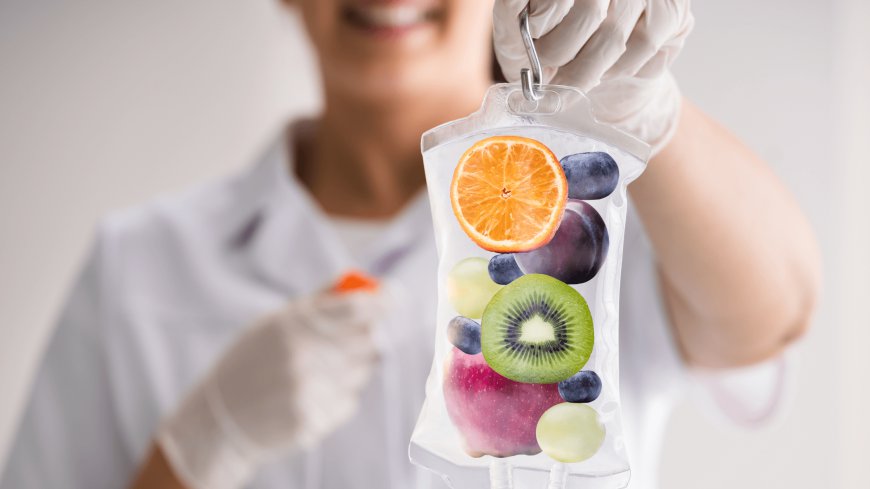What medications should not be taken with B12?
Vitamin B12, also known as cobalamin, plays a crucial role in maintaining the health of our nerve cells and the production of DNA and red blood cells. For many individuals, particularly those experiencing deficiencies, IV drip therapy in Islamabad has become a popular method to ensure adequate vitamin B12 levels. This therapy allows for the direct infusion of B12 into the bloodstream, ensuring maximum absorption and rapid results. However, it's important to consider potential interactions between B12 supplements and other medications.

Vitamin B12, also known as cobalamin, plays a crucial role in maintaining the health of our nerve cells and the production of DNA and red blood cells. For many individuals, particularly those experiencing deficiencies, IV drip therapy in Islamabad has become a popular method to ensure adequate vitamin B12 levels. This therapy allows for the direct infusion of B12 into the bloodstream, ensuring maximum absorption and rapid results. However, it's important to consider potential interactions between B12 supplements and other medications.
Understanding Vitamin B12
Vitamin B12 is a water-soluble vitamin found naturally in animal products such as meat, fish, eggs, and dairy. While many people get sufficient B12 from their diets, certain factors like age, dietary restrictions, and health conditions can lead to deficiencies. Symptoms of B12 deficiency may include fatigue, weakness, numbness, and cognitive issues.
Medications that May Interact with Vitamin B12
While vitamin B12 is generally safe, certain medications can interfere with its absorption or effectiveness. Here’s a closer look at some medications that should be taken with caution alongside vitamin B12 supplements:
-
Metformin: This common medication for type 2 diabetes can impair the absorption of vitamin B12 in the intestines. Patients taking metformin should monitor their B12 levels regularly and consider supplementation if levels are low.
-
Proton Pump Inhibitors (PPIs): Drugs like omeprazole, lansoprazole, and esomeprazole, used to treat conditions like acid reflux, can reduce stomach acid. Since stomach acid is necessary for the release of vitamin B12 from food, long-term use of PPIs can lead to decreased B12 absorption.
-
Antibiotics: Certain antibiotics, especially those in the class of tetracyclines and sulfonamides, may interfere with the gut bacteria that help synthesize vitamin B12. While this interaction is less common, it's worth discussing with your healthcare provider if you are on prolonged antibiotic treatment.
-
Cholestyramine: This medication is used to lower cholesterol levels. However, it can bind to vitamin B12 and impede its absorption in the intestine. It’s advisable to take vitamin B12 supplements at least one hour before or four to six hours after taking cholestyramine.
-
Aspirin and Other Nonsteroidal Anti-Inflammatory Drugs (NSAIDs): Long-term use of aspirin and NSAIDs may affect the absorption of vitamin B12 by damaging the intestinal lining. Individuals on these medications should monitor their B12 levels closely.
-
Anticonvulsants: Medications like phenytoin and phenobarbital, used to control seizures, can also interfere with vitamin B12 metabolism. If you are taking these medications, consider discussing B12 supplementation with your doctor.
Monitoring and Managing B12 Levels
If you are on any of the medications listed above, it is essential to monitor your vitamin B12 levels regularly. Your healthcare provider may recommend periodic blood tests to ensure your levels remain within the normal range. If deficiencies are identified, IV drip therapy in Islamabad can be an effective solution to quickly replenish B12 levels.
Moreover, if you suspect you may be at risk for a B12 deficiency due to medication interactions, it is crucial to discuss this with your healthcare provider. They may suggest dietary adjustments, oral supplements, or more immediate treatments like B12 injections or IV therapy.
Conclusion
Vitamin B12 is vital for numerous bodily functions, and understanding its interactions with various medications is essential for maintaining optimal health. If you're considering vitamin B12 supplementation or IV drip therapy in Islamabad, consult your healthcare provider to discuss your current medications and any potential interactions.
Taking a proactive approach to your health can significantly enhance your quality of life. For those seeking comprehensive medical care and expertise, Royal Cosmetic Surgery offers tailored solutions to meet your health and wellness needs. Visit Royal Cosmetic Surgery to learn more about our services and how we can assist you in achieving your health goals.

 Sania
Sania